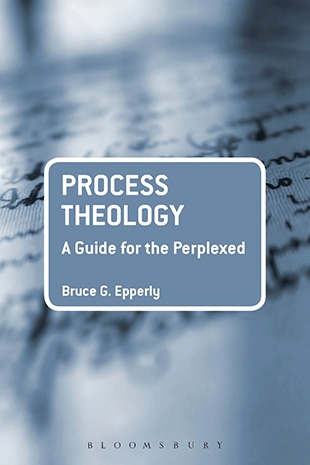"Process theology maintains that in spite of the brokenness of life, we live in a grace-filled world. God is active in every moment of life, gently guiding the universe part and whole toward the possibility of greater complexity and beauty of experience. Long before the emergence of humankind, God was at work in the evolutionary process, which from the birth of this universe has reflected the interplay of creative wisdom and creaturely decision-making. The realities of beauty and conflict, and life and death, preceded the evolutionary emergence of the human species. Accordingly, process theology does not ground sin in a historically datable decision of a primordial couple. Sin as an inherited problem and chosen act emerges from a world in which the realities of cooperation and competition already existed before the emergence of humankind. Just as the experience of pain may require a certain complexity of experience, the reality of sin requires creatures who can consciously turn away from their highest personal, environmental, and communal good as well as repeat the dysfunctional and harmful behaviors of their community or family of origin.
"In the midst of the ambiguity of the human condition, God's grace still abounds. Grace is not a supernatural intrusion on human experience, although it may be experienced as radically transformative of our lives and relationships. Grace is rooted in God's ever-present and tender care, revealed throughout nature, in human communities, in the depths of the unconscious as well as in insights and synchronous encounters, and, according to Christian faith, in God's movements through the Hebraic peoples and the healing presence of Jesus of Nazareth, which call us to creative transformation.
"With the Apostle Paul, process theology counsels, 'be not conformed to this world, but be transformed by the renewing of your mind.' (Romans 12:2) Process theology recognizes that 'mind,' described by the Apostle Paul, is holistic in nature as the integrating center of our lives, joining embodiment, relationship, imagination, and novelty in the context of the communities in which we live. In the spirit of the Hebraic prophets, process theology sees hope for transformation emerging from healing relationships and healing communities. While the impact of inherited sin can never fully be eliminated in an interdependent world, it can be transformed through acts of reconciliation and affirmation. Although we cannot erase the results of decisions that cause pain for ourselves or others, we can open to the grace that is constantly moving in our lives, seeking in each moment 'the best for that impasse.' In the spirit of John Wesley, process theology recognizes the transforming presence of God's grace in every situation, prior to any efforts on our part. Unlike the Calvinist tradition, God's grace is not irresistible and coercive, but persuasive and inspirational. Still, grace is constant in its intimate invitation to claim God's healing and loving care, inviting people in undramatic and dramatic ways to say 'yes' to God's 'yes' over and over again. No one is ultimately left behind by the persistent and graceful God.
"God always calls us toward creative transformation. In our awakening to the grace of transformation, we begin a path of healing and sanctification, or spiritual transformation, in which tragedy and sin can be transformed into beauty of experience for ourselves and others. As recipients of grace, we can become Christ-like, growing in wisdom and stature, embracing our whole selves, and contributing by our healing to the healing of our communities and the planet."
